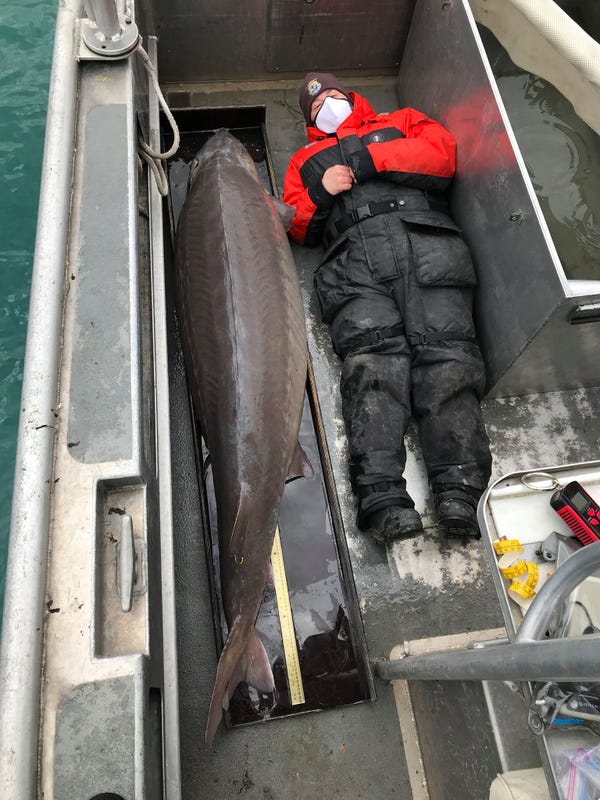
When Jennifer Johnson and her team embarked on their annual quest to survey the sturgeon population in the Detroit River in mid-April 2021, they had fully expected to find some super-sized specimens. However, the U.S. Fish and Wildlife Service biologists had never anticipated luring in the granddaddy of all sturgeons — a massive, 240-pound, 6-foot, 10-inch long fish that they estimate is at least a century old!
"Normally when a fish goes by, we call, "Fish! Fish!"' Johnson told The Detroit News. "This time when the shadow went by, and I saw it, I shouted, 'Fish! Big fish!"'
The scientist says that she instantly knew the sturgeon, caught on April 22, 2021, was heavier than the previous Detroit River record holder — a 123-pound specimen encountered in 2017. However, she assumed it most likely weighed just a tad more — perhaps totaling at about 150 pounds. It was only after she and her colleagues Paige Wigren and Jason Fischer used their collective strength to haul in the river "monster" did they realize that this was truly a "one in a lifetime catch."
Johnson, who lay alongside the fish in the now-viral photo posted on the Alpena Fish and Wildlife Conservation Office Facebook page, says, "Normally, we would have a nicer picture where we’re holding it up. But since it took all three of us to pick it up, that wasn’t going to happen."

Judging from the fish's size and girth, Fischer estimates that the sturgeon, believed to be a female, has been a Detroit River resident since around 1920. He speculates that the massive fish was most likely spawning in the river's rocky shoals, which provide a perfect habitat for sturgeons, before it was lured in by the frozen round goby fish that the biologists used as bait. As is the case with all the sturgeons caught, the biologists marked the centenarian with a unique tag for conservation purposes and released it back to the ocean to swim away — hopefully for another century.
While lake sturgeons were once abundant in the waters around Michigan, there are now just about 28,000 specimens left in the St. Clair-Detroit River system. To prevent the fish from going extinct, commercial fishing of sturgeons is prohibited, and amateur fishermen are allowed to keep just one specimen a year — as long as it does not exceed a specific size and is captured from one of the designated harvesting areas.
Resources: Alpena Fish and Wildlife Conservation Office Facebook, DetroitNews.com
